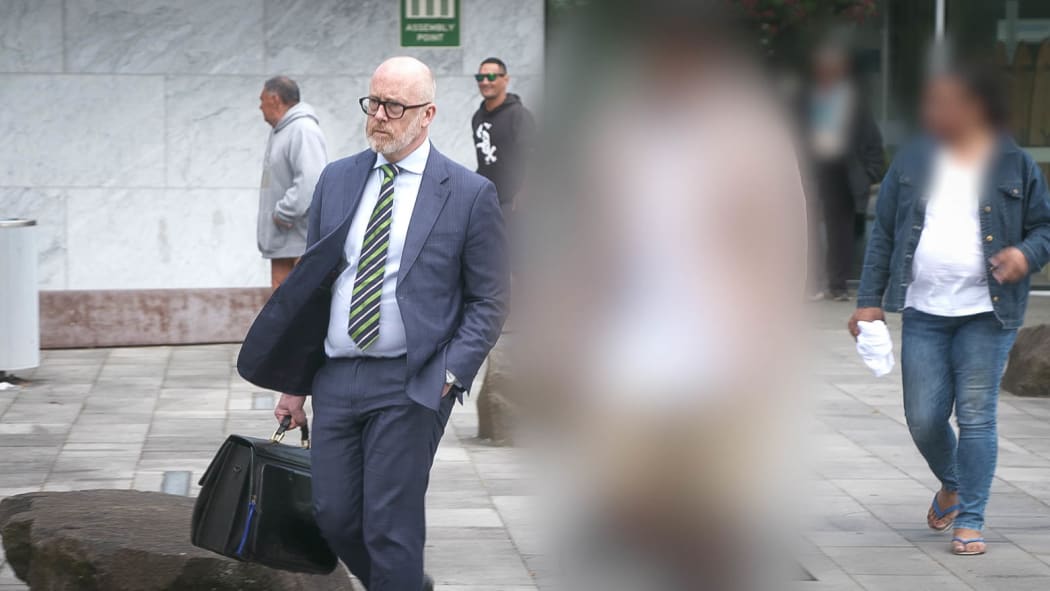
'Well known NZ sportsman' - this is what name suppression looks like. Photo: RNZ / Patrice Allen
When a rich and connected Auckland couple broke covid rules to holiday in Wanaka, the public response was a baying for blood. An attempt to keep their names secret – saying they’d had death threats – only added to the intense quest to find out who they were.
By the time William Willis and Hannah Rawnsley fronted publicly, every media organisation in the country made sure to put their names out there, front and centre. Scorn was heaped.
The saga has prompted a look at our name suppression laws, and today on The Detail Emile Donovan talks to public law expert Graeme Edgeler about why we have them; who gets them; and the fuel they pour on public interest.
Name suppression is either statutory – Youth Court and sexual assault victims for example have automatic name suppression – or discretionary – a judge orders that certain reports, facts, or people’s identities, must be kept a secret.
This used to be at the discretion of the judge, but in 2011 the Criminal Procedure Act introduced parameters to guide the judiciary. Now, the publishing of the name of a defendant would have to cause ‘extreme hardship’ before name suppression is granted.
If you’re famous, ‘extreme hardship’ could be justified if a yet-to-be convicted person were to attract undue publicity for their unproven transgression.
Edgeler says that might mean the consequences of publishing the person’s name would be so harmful, that it would be unfair or unjustified to make them suffer that consequence.
“It’s relatively rare. Certainly permanent suppression is relatively rare,” he says.
“The fact that someone’s famous is not a basis on which they can get name suppression. They still have to meet the statutory test,” he says. “It has to be a very serious level of harm that would be caused to them by the publication of their name.
“But factually, the news media reports (for example) former All Blacks who get charged with offences basically every time it happens. And they don’t report (those of) random-guy-in-the-street who we’ve never heard of. And so just as a consequence as … the way the news media operates, what people are interested in, the consequences of being a famous person in court is that you get a lot more publicity than anyone else in court.
“If the news media is not going to report your case, or maybe it’s going to be one line on page 14 of some local paper … you don’t need to ask for name suppression.”
Death threats, the repercussions for family members, or the potential collapse of a business are reasons for being granted a cloak of secrecy – basically when the consequences of conviction fall on people before they’ve been convicted.
But there’s no doubt name suppression is a tool of the wealthy.
If you’re rich and the police have had a word to you, you can lawyer-up immediately and that lawyer can apply for name suppression straight away.
If you’re depending on legal aid you won’t get your own lawyer until after your first court appearance – by which time it’s too late for you, the cat’s out of the bag if someone’s sitting on the press bench.
Edgeler also explains how name suppression can effectively be dragged out even if it’s refused, by way of appeals. That requires a good lawyer too. He quotes the old adage that it’s better to be a rich guilty person than an innocent poor person when it comes to the criminal justice system.
But sometimes the opposite is true too – more than 200 people have been charged with Alert Level 4 breaches since restrictions came into place, but the only ones whose names we know are William Willis and Hannah Rawnsley.

PIJF Photo: .

